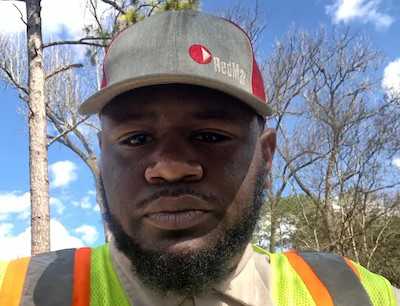
Restore right to vote: Mississippians deserve power to change their communities
Jay JacksonClarion Ledger — March 02, 2021
As a life-long Mississippian with almost a decade of public service working for the city of Jackson, I have been a committed and active community member. My ability to create a better future for my community, however, has been blocked because I can’t vote.
I lost my right to vote due to a prior felony conviction and for three straight years, I have applied to have my voting rights restored by Mississippi’s legislature, but to no avail.
My story is all too common. An estimated 235,152 Mississippians can’t vote for the same reason, and it is past time that Mississippi’s legislature fix the state’s discriminatory reentry and voting rights restoration process.
In the state of Mississippi, the criminal legal system and voting rights are inseparably linked. The state permanently strips residents of their voting rights if they commit one of 22 specific felony crimes, and there are only two ways to regain your rights: Persuade the governor to sign an executive order restoring your right to vote or (for those without money and connections), submit an application to your state legislator to introduce a Bill of Suffrage that restores your individual voting rights. The legislature must pass this bill by a two-thirds majority vote.
Many of the state’s disenfranchised are unaware a process to restore their voting rights exists or that the challenging process of getting your rights back is linked to the state’s Jim Crow legacy.
In 1890, when lawmakers drafted Mississippi’s Constitution, they intentionally created a system designed to disproportionately disenfranchise people of color. Lawmakers banned those convicted of specific crimes from voting, and chose crimes more likely to be committed by Black people, as opposed to those committed by whites.
As a result, timber theft became a disenfranchising offense, but not murder – as murder was more frequently committed by whites. In 1995, a federal court found that the state’s felony disenfranchisement laws were an intentional attack on Black voters. Despite changes to the law and new legal challenges, the racially disproportionate impact remains. In 2020, 130,501 Black Mississippians were disenfranchised – nearly 16% of the state’s Black electorate and twice the national average.
In addition to being racially discriminatory, the state’s rights restoration and reentry system does not work for most Mississippians. Less than a third of Mississippians who attempt to regain their voting rights do so successfully. The legislature does not notify individuals when their applications are denied and provides no explanation as to why they were turned down, just like in my case. The cumbersome process makes it clear that the act of disenfranchising certain Mississippians is meant to be permanent.
Disenfranchisement is just one reentry challenge people face when returning home from prison. They often lack money or identification and have limited housing and employment options. Yet, even if they want to elect leaders that will improve their communities and create better reentry programs, they can’t because that right has been taken from them.
We need leaders at every level in Mississippi to realize what their counterparts in 1890 knew well — when you deny someone’s right to vote, you deny them the opportunity to determine their own future. Mississippi needs to leave its history of racially oppressive laws behind — it should automatically restore the right to vote to everyone who completes their sentence.
Voting is a right, not a privilege the state should take away. As noted in a recent report on felony disenfranchisement and reentry, Voice, Our Vote: Felony Disenfranchisement and Reentry in Mississippi, legislators need to dramatically improve the process for restoring people’s voting rights. They must establish clear criteria for suffrage applications, notify applicants when their application will be considered, and provide a clear decision and explanation of the outcome of their application.We also need to strengthen the support systems for people re-entering society, beginning with the basics that impact their livelihoods. Legislators should pass laws banning businesses from requesting information on job applicants’ non-violent felony convictions. The state should ensure compliance with the law that requires Mississippi provide every person leaving prison with identification. Officials also should work to provide individuals with more services to help plan housing and employment options after they experience incarceration.
Mississippi residents are striving every day to rebuild lives that better themselves and their communities. They deserve more support to get there and more opportunities to have a say in what happens to them. It starts with restoring their voice — the right to vote.
Jay Jackson is a life-long Mississippian. He has worked for city of Jackson for almost a decade and is a member of One Voice Mississippi.
